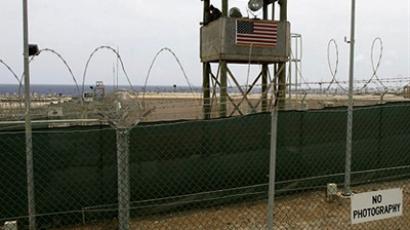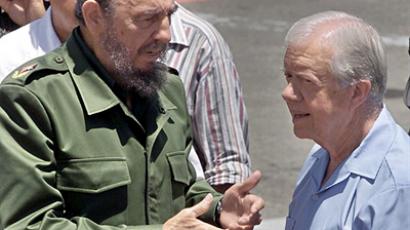American majority wants Cuban embargo lifted
Poll after poll show a growing number of Americans want an end to the US embargo on Cuba. It has been in place for over half a century and though it was designed to bring down Fidel Castro, it is Cuba’s citizens who have felt its impact most.
Despite promises from President Obama downwards, it seems America’s powerful anti-Castro lobby is not about to let the embargo drop any time soon. Following the Cuban Revolution in 1959, the US imposed an embargo on all trade, investment and travel in an attempt to bring down the communist government of Fidel Castro Cubans who fled the island for the US pushed to keep this agenda alive, and so the anti-Castro lobby was born. “They give a lot of money, US elections are in fact privately financed, and so they've been able to figure out how to play the game. Even though they are a small percentage of the population they play a very big in a key swing state,” Frank Sharry, founder of America's Voice organization, said. Polls consistently show that two-thirds of Americans favor ending the embargo and normalizing relations with Cuba, and some in Congress agree. “It’s about time we talked to Cuba and stopped fighting these wars that are about 30 or 40 years old,” Senator Ron Paul said. But anti-Castro groups have given a total of $1.798.124 in donations to House and Senate candidates from 2004 to 2010, keeping US Cuba policy virtually unchanged. Fewer than one per cent of Americans are of Cuban origin and the majority emigrated before the end of the Cold War. Unlike the rest of the Hispanic population in the US, 58 per cent of Cubans are US citizens.”Cubans that arrive and set foot on beaches in Florida are on their way to citizenship. Haitians that arrive and set foot on the beaches of Miami are on their way to a detention center and deportation,” Frank Sharry said. Cuban Americans are also a force to be reckoned with in Congress.They are the most over-represented community in Congress, with two senators and four representatives, including the powerful Chairman of the House Foreign Affairs Committee, Ileana Ros-Lehtinen. ”I welcome the opportunity to have anyone assassinate Fidel Castro and any leader who is oppressing the people,” Ileana Ros-Lehtinen said. They have powerful political action committees behind them, like the US Cuba Democracy PAC, the number one campaign donor in 2006 with $569.624. “Our community is very focused and concentrated in New Jersey and Florida and so we have to make an effort to get out there and create the relationships,” Mauricio Claver-Carone, Director of US-Cuba Democracy Lobby Group, said. Their agenda has been known to change many politicians’ minds, including President Barack Obama’s.“I think it’s time to end the embargo,” Senator Barack Obama said back in January 2004. Yet he changed his mind while campaigning before the Cuban American National Foundation, stressing that: “As president I’m not going to end the embargo.” But while the majority of Americans favor ending the sanctions against Cuba, even protesting in the streets, they have yet to match the strength of the anti-Castro lobby.














